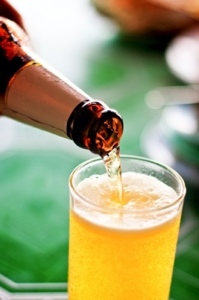
Cheers to discovery that could amp up wine’s health benefits
Food in Canada
Research & Development Beverages beer bread health benefits University of Illinois wine yeastScientists at the University of Illinois have engineered a yeast that could increase the health benefits of wine and reduce the byproducts that cause headaches

Urbana, Ill. – Scientists in the U.S. have found a way to increase wine’s health benefits – and reduce the morning-after headaches some consumers experience.
 The University of Illinois scientists engineered a yeast that’s behind the new and exciting developments in wine.
The University of Illinois scientists engineered a yeast that’s behind the new and exciting developments in wine.
“Fermented foods — such as beer, wine and bread — are made with polyploid strains of yeast, which means they contain multiple copies of genes in the genome,” explains Yong-Su Jin, an associate professor of microbial genomics and principal investigator in the Energy Biosciences Institute.
“Until now, it’s been very difficult to do genetic engineering in polyploid strains because if you altered a gene in one copy of the genome, an unaltered copy would correct the one that had been changed.”
The university’s website explains that recently scientists have developed a “genome knife” that cuts across multiple copies of a target gene in the genome very precisely – until all the copies are cut.
Jin’s group has now used this enzyme, RNA-guided Cas9 nuclease, to do precise metabolic engineering of polyploid Saccharomyces cerevisiae strains that have been widely used in the wine, beer and fermentation industries.
The discovery has huge possibilities for improved nutritive value in foods.
Wine, for instance, contains the healthful component resveratrol, says Jin. “With engineered yeast, we could increase the amount of resveratrol in a variety of wine by 10 times or more.”
Jin adds scientists could also add “metabolic pathways to introduce bioactive compounds from other goods, such as ginseng, into the wine yeast. Or we could put resveratrol-producing pathways into yeast strains used for beer, kefir, cheese, kimchee or pickles – any food that uses yeast fermentation in its production.”
Another benefit, says the website, is that winemakers can clone the enzyme to enhance malolactic fermentation, a secondary fermentation process that makes wine smooth.
Improper malolactic fermentation is what generates the toxic byproducts that may cause hangover symptoms, adds Jin.
He also stresses that the genome knife’s importance as a tool allows genetic engineers to make these extremely precise mutations.
“Scientists need to create designed mutations to determine the function of specific genes,” he explains.
“Say we have a yeast that produces a wine with great flavour and we want to know why. We delete one gene, then another, until the distinctive flavour is gone, and we know we’ve isolated the gene responsible for that characteristic.”
The website adds that the new technology also makes genetically modified organisms less objectionable, he said.
“In the past, scientists have had to use antibiotic markers to indicate the spot of genetic alteration in an organism, and many persons objected to their use in foods because of the danger of developing antibiotic resistance. With the genome knife, we can cut the genome very precisely and efficiently so we don’t have to use antibiotic markers to confirm a genetic event.”
Print this page